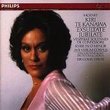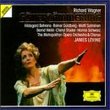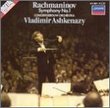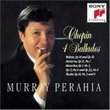| All Artists: Plácido Domingo, Cheryl Studer, Agnes Baltsa, Matti Salminen, Andreas Schmidt, Barbara Bonney, Clemens Bieber Title: Tannhäuser / Domingo, Studer, Baltsa, Salminen, A. Schmidt; Sinopoli Members Wishing: 0 Total Copies: 0 Label: Deutsche Grammophon Release Date: 9/27/1989 Genre: Classical Style: Opera & Classical Vocal Number of Discs: 3 SwapaCD Credits: 3 UPC: 028942762527 |
Search - Plácido Domingo, Cheryl Studer, Agnes Baltsa :: Tannhäuser / Domingo, Studer, Baltsa, Salminen, A. Schmidt; Sinopoli
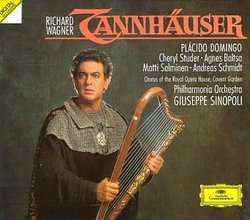 | Plácido Domingo, Cheryl Studer, Agnes Baltsa Tannhäuser / Domingo, Studer, Baltsa, Salminen, A. Schmidt; Sinopoli Genre: Classical
Another Paris Tannhäuser recording, this one seeing the adaptable Placido Domingo take a break from the world of Italianate opera to try on the mantle of Heldentenor. Domingo's clear, manly voice is well suited to t... more » |
Larger Image |
CD DetailsSynopsis
Amazon.com Another Paris Tannhäuser recording, this one seeing the adaptable Placido Domingo take a break from the world of Italianate opera to try on the mantle of Heldentenor. Domingo's clear, manly voice is well suited to the transformation--precisely why Italians usually don't think of him as a bella voce. Agnes Baltsa approaches the role of Venus in a less shrill and more human manner than often is heard in portrayals of the excitable goddess. The sound is exceptionally clear in the recording, a comparatively newer digital mastering from the late 1980s. The chorus work is good, though not quite on the sublime plane reached in the Georg Solti recording. Maestro Giuseppe Sinopoli conducts the Philharmonia Orchestra and the Chorus of the Royal Opera House, Covent Garden in a measured, stately manner. --Christian C. Rix Similar CDs
Similarly Requested CDs |
CD ReviewsFirst choice, by a small margin cdsullivan@massed.net | Cambridge, MA USA | 09/03/2000 (4 out of 5 stars) "Tannhäuser has been recorded surprisingly rarely: I believe the only studio recordings are Solti's from 1971, and this Sinopoli from 1988. Neither recording is ideal, but I believe this recordings virtues are slightly greater than those of the Solti.First and foremost is Plácido Domingo, whose silvery, ringing voice is ideal for the title role. His German is eccentric, but he is forgiven for the excellence of his voice. He is far superior to Kollo for Solti. Cheryl Studer sings a beautiful, well-characterized Elisabeth, but is not always ideally steady and is no match for the radiant Helga Dernesch (Solti). Agnes Baltsa characterizes well, but similarly does not have an ideal voice and is inferior to Christa Ludwig. Andreas Schmidt, though, is a beautiful, velvety Wolfram, singing beautifully in his Act III solo. Matti Salminen sings well but is rather uneven. The rest of the cast is excellent, and the Chorus of the Royal Opera House, Covent Garden contributes inspired choral work. Sinopoli directs the Philharmonia Orchestra warmly and lyrically; his interpretation is more flexible than Solti's sometimes stiff, cold account. Sinopoli takes the Overture rather more slowly than usual, which is a little strange at first, but gradually gets better. Sinopoli also controls the transitions excellently. Superb liner notes and a libretto are included. The digital sound is fabulously clear and rich. In the end, the virtues of this recording outweigh the drawbacks. This is as fine a recording as the work has yet received." A sonic and vocal winner! D. J. Edwards | Cheshire, CT United States | 07/21/2001 (5 out of 5 stars) "For a recording over ten years old, the small number of reviews here is surpising. I think Domingo and Studer make this a superb recording, singing with full, sonorous voices without a hint of strain. Their voices ring. Domingo triumphs in acts one and three and Studer owns Act two. The sound is rich and full and Sinopoli brings passion and drama a plenty to the recording. I fail to see how this is an "awful recordng". But we listeners all come with our own expectations. The recording certainly deserves to be heard and it is the only recording of Tannhauser tha I own and plan to own. I hope more people will at at least hear the recording and review it. I think that this recording in particular makes more lamentable Sinopoli's recent death. Balsta definitely falls short of Ludwig's peformance. Schmidt sings well doing justice to his song in act three and the chorus is top notch. Gramophone, Opera Now, Penguin Guide, Opera News, Stereo Review (in the olf format) gave the recording good to raving reviews. That many peole can't be totally wrong. Give the recording its due." A Dreamy, Beautiful, Golden Tannhauser D. J. Edwards | 02/08/2006 (5 out of 5 stars) "This 80's studio recording of Wagner's Tannhauser is not largely considered "Wagnerian" because all the talents behind it are not German, but it is a beautifully rendered opera and very moving. It stars Placido Domingo as Tannhauser, Cheryl Studer as Elisabeth, Agnes Baltsa as Venus, Matti Salminen as Hermann, Andreas Schmidt as Wolfram Von Eschenbach and Barbara Bonney as a Young "hirt". Italian conductor Giuseppe Sinopoli conducts. Other than the principal singers, the rest are German singers. Sinopoli conducts with great texture and subtleties. Dramatic climaxes are all in their respective place and most importantly of all, the music never drowns out the singers but, like bel canto, accompanies them well. Placido Domingo sings with passion, elegance and wonderful dramatic abilities. He has portrayed Tannhauser on stage and he fits the character well. The poet-musician who has lived with Venus, renouncing his Christian faith and love- Elisabeth- only to realize the folly of his ways is a wonderful vehicle for Domingo. Domingo is a versatile singer and one whose voice is glorious, simply beautiful and energetic. Sure, let the critics have their field days about how he can't sing Wagner. I say he can and best of all he is not "bitten" by the Bayreuth bark and is a welcome change from all the Wolfang Windgassens, Jon Vickers, Rene Kollos and James Kings on studio recordings. Mezzo soprano Agnes Baltsa as Venus is sensual, mellow and calculating. She sings with great beauty and never sounds edgy or erratic. She is wonderful and proves her own versatility as she has sung a number of roles from Dona Elvira in Mozart's Don Giovanni, La Cenerentola from Rossini's opera to Verdi's wicked heroine Eboli in Don Carlo and Queen Elisabeth in Donizetti's Maria Stuarda among many other roles. Matti Salminen's voice is noble and grand and Wagner goes well on him. It is a gorgeous voice, with a healing quality to it. I've seen Matti on stage and he has a regal presence. The only weak link in this cast is, unfortunately, Cheryl Studer as Elisabeth. There is no sense of true Wagnerian musicality here. Even Domingo has that. Studer sings the role with no real emotion or warmth, and sounds as if she were singing Marguerite in Faust or Donizetti's Lucia. She has a beautiful voice but it's not suited to Wagner. It's an experiment from her part to sing the role of Elisabeth. Also, she takes the "sweet and dull girlfriend" approach to the part. I like to think that Elisabeth had some spine. Yes, she represents the Christian woman, but she should be seen as a fighter, she is fighting to save Tannhauser's soul. She is a warrior of God, an angel with the weapon of love. But very few sopranos sing her as a fighter. Normally, Elisabeth is mellow, sweet and lackluster next to the more fiery and passionate Venus. But Elisabeth ought to have some passion too. I have enjoyed Studer in other roles but she does not impress as Elisabeth. But not even this is a drawback. This is a fine recording with great moments of beauty and drama."
|

 Track Listings (12) - Disc #1
Track Listings (12) - Disc #1





